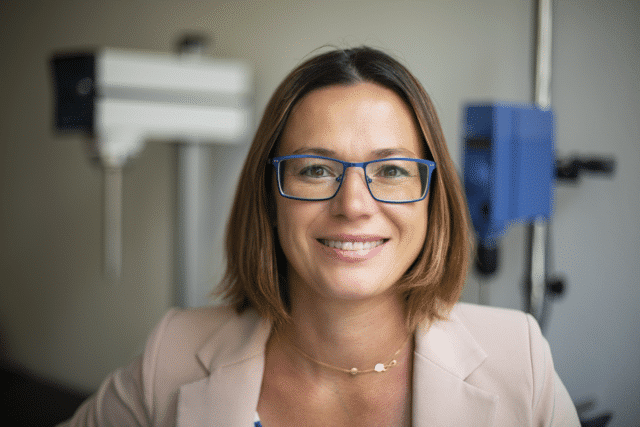Congratulations to our three 2022 Grant Program for Scientists & Start-Ups North and South America winners! We are awarding a group of scientists with funding and resources along their journey in the microbiome space. The winners are receiving 90 samples extracted and sequenced, taxonomic profiling, functional profiling, statistical comparative analysis & a CosmosID-HUB bronze subscription!
The winner of the industry category was Dr. Julia Durack from Symbiome in the USA!
About Dr. Durack: Juliana Durack, Ph.D. is the VP of Research and Product Development at Symbiome, a San Francisco-based microbiome R&D company, and the developers of the Symbiome™ brand of BioIntact™ fermented skincare products that nourish and protect the skin and its microbiome, restoring what we’ve lost in the modern world. Symbiome has sponsored three research expeditions deep into the Amazon rainforest to define the evolutionary reference standard for the pre-industrialized human microbiome. The Symbiome goal is to transform our understanding of a healthy human microbiome and to develop microbiome-related products that restore health and resilience to modern lives.
Abstract title: Unravelling a biogeographical fingerprint of the pre-industrialized human microbiome.
Abstract: Loss of gut microbiome diversity has become a cardinal feature of chronic inflammatory conditions, which are rising in industrialized countries. These are not observed in indigenous populations who still follow a traditional hunter-gatherer lifestyle, such as the Yanomami, indigenous to the Amazon, who have the most diverse microbiomes studied to date. Our metagenome analysis of the Yanomami cutaneous microbiome has uncovered a diverse range of microbes and metabolic pathways absent from western skin, uncovering 172 novel bacterial metagenome-assembled genomes (MAGs). This highlights that indigenous metagenomes are a reservoir of unexplored human co-evolved microbial genomes and are of particular interest for the development of microbial-based therapeutics and bioactives. We propose to continue our exploratory analysis of the pre-industrialized microbiomes, extending to more complex microbial assemblages to unlock the full metagenomic potential of a healthy human gut unaltered by urbanization.
To elucidate the pre-industrialized gut microbiome’s composition and functional potential, we will perform shotgun metagenomic sequencing on Yanomami stool samples (n=30). To partially account for differences in gut microbiota associated with diet, the Yanomami microbiome will be contrasted to western controls consuming regular western food (n=9) and vegetarians (n=9). To further address the compositional and functional contribution of the gut microbiome, a gut microbiome profile will also be generated on longitudinal samples (n=9) from a western expeditioner, along an urbanization gradient and adopting the traditional Yanomami lifestyle. Since the gut microbiome is also known to be influenced by oral and, to a lesser extent nasal microbiota, their contribution (n=10;n=8, respectively) to the Yanomami gut microbiome will be evaluated and contrasted to those from the western expeditioner at various time points (n=9;n=6 respectively). Together with the previously sequenced cutaneous communities, these will uncover a novel biogeographical fingerprint of the pre-industrial human microbiome.
Congratulations to Dr. Durack!




